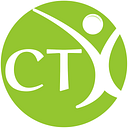Physiotherapy Manchester: Personalized Care for Optimal Results
Physiotherapy is an essential component in the treatment and rehabilitation of a variety of physical illnesses and diseases. Manchester’s emphasis on individualized care guarantees that patients receive treatment plans that are customized to their specific requirements and illnesses. This customized approach improves not only rehabilitation but also general health and well-being.
Understanding Physiotherapy
Physiotherapy, often known as physical therapy, is the application of numerous techniques to assist people recover movement and function after an injury, sickness, or handicap. It may involve exercises, manual therapy, teaching, and counsel. The fundamental purpose of physiotherapy is to relieve pain, increase mobility, and enhance overall quality of life.
Key Benefits of Physiotherapy
- Pain Management: Physiotherapy treatments like manual therapy, ultrasound, and electrical stimulation can help reduce pain and restore muscle and joint function.
- Improved Mobility: Customized exercises can assist people, particularly those with mobility concerns, in regaining strength and flexibility.
- Post-Surgery Recovery: Physiotherapy is an important part of the post-surgery rehabilitation process, as it helps patients regain function and expedite their recovery.
- Injury Prevention: Physiotherapists provide guidance and exercises to help athletes avoid injuries.
- Management of Chronic Conditions: Chronic illnesses such as arthritis, diabetes, and heart disease can all be managed with physiotherapy.
The Importance of Personalized Care
Physiotherapy clinics in Manchester prioritize individualized service to guarantee that their patients achieve the best possible results. Personalized care in physiotherapy entails developing treatment programs that are personalized to each patient’s individual needs, circumstances, and goals. This strategy includes a thorough evaluation and ongoing monitoring to change the treatment as needed.
A thorough evaluation is the first step in individualized physiotherapy. This includes gathering a thorough medical history, evaluating the patient’s lifestyle, and doing physical exams. Imaging investigations and functional tests can help with diagnosis. This thorough assessment aids in determining the underlying cause of the problem and devising an effective treatment plan.
Based on the evaluation, physiotherapists create a treatment plan that is specific to the patient’s needs. This approach could involve a combination of exercises, manual therapy, teaching, and other therapeutic methods. The goal is to treat the underlying source of the problem rather than just the symptoms.
Personalized care entails ongoing evaluation of the patient’s progress. Regular follow-up appointments allow physiotherapists to evaluate the success of the treatment and make any required changes. This ensures that the treatment is effective and that the patient continues to make progress toward their recovery goals.
Techniques Used in Personalized Physiotherapy
Physiotherapists in Manchester use a range of strategies to deliver personalized care. These strategies are chosen to meet the patient’s specific demands.
Manual therapy uses hands-on techniques to mobilize joints, relieve pain, and increase mobility. Common techniques include massage, joint mobilization, and manipulation.
Exercise therapy is a core component of physiotherapy. Physiotherapists prescribe specific exercises to help improve strength, flexibility, and endurance. These exercises are tailored to the patient’s condition and goals.
Electrotherapy employs electrical signals to alleviate pain and inflammation. Transcutaneous Electrical Nerve Stimulation (TENS), ultrasound therapy, and laser therapy are frequently employed.
Education and counsel are critical components of customized physical therapy. Physiotherapists help patients understand their disease, treatment alternatives, and self-management tactics. This allows patients to take an active role in their healing.
Success Factors in Personalized Physiotherapy
A comprehensive approach to physiotherapy includes the patient’s complete well-being. This covers physical, emotional, and mental wellness. A holistic approach guarantees that the patient receives comprehensive care that covers all aspects of their health.
Engaging the patient in their treatment plan is critical to success. Patients who understand their disease and actively participate in their treatment are more likely to stick to the plan and achieve greater results.
Using current technology can improve the efficacy of physiotherapy. Virtual reality, telehealth, and mobile health apps can help patients receive additional support and monitoring, making therapy more accessible and interesting.
Community support can have a substantial impact on the success of physiotherapy. Patients can be motivated and encouraged to stay dedicated to their rehabilitation by joining support groups, participating in community programs, and receiving peer support.
The Future of Physiotherapy in Manchester
The emphasis on personalized care in physiotherapy is projected to increase in Manchester. Advances in technology and a better understanding of patient demands are expected to generate additional improvements in treatment outcomes. Telehealth and virtual physiotherapy sessions are making it easier for patients to receive tailored care regardless of their location.
Conclusion
Physiotherapy in Manchester is committed to offering tailored care to achieve the best results. Patients receive the best possible care through detailed assessments, personalized treatment regimens, and ongoing monitoring. If you or a loved one requires physiotherapy, consider individualized treatment to get the greatest possible results.
For more information or to schedule a consultation, please contact CT Clinic at (+44) 0741 5250 762 or email us at info@ctclinic.co.uk.
Originally published at https://www.ctclinic.co.uk on July 5, 2024.
Read More Here :- Physiotherapy Manchester: Personalized Care for Optimal Results
